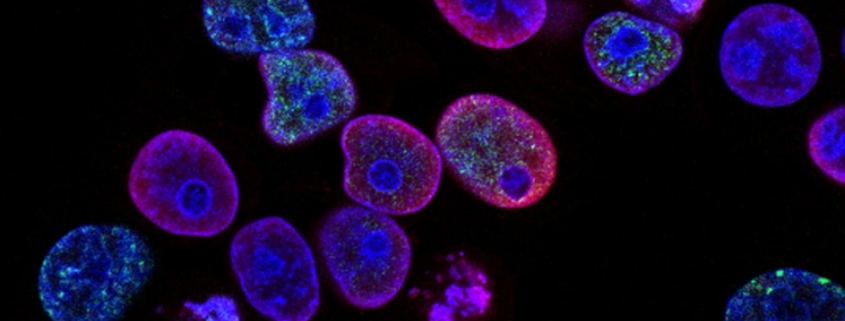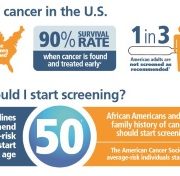Lynch Syndrome: An Overview
Lynch syndrome is an inherited genetic condition that increases risk for colorectal and other cancers. It is the single most common cause of hereditary colorectal cancer. Here’s what you need to know about the condition.
What causes Lynch Syndrome?
Lynch syndrome, sometimes called hereditary nonpolyposis colorectal cancer, is inherited by children from their parents. It is inherited in an autosomal dominant pattern, meaning that only a single copy of the altered gene needs to be present. So, if someone inherits a mutation in a gene related to the syndrome, they will still have a normal copy. However, cancer occurs when a second mutation affects the normal copy of the gene.
The specific genes involved in the syndrome are all involved in repairing errors that occur during DNA replication. If any of the genes (MLH1, MSH2, MSH6, and PMS2) have a mutation, errors occurring in replication accumulate, which can end up leading to uncontrolled cell growth and cancer.
Complications from Lynch Syndrome
If you have Lynch syndrome, you have a higher risk of developing colorectal cancer, and developing it at a younger age. People with the syndrome also have a higher risk of developing kidney, stomach, brain, liver, uterine, and some skin cancers. There are several other inherited conditions that can increase your risk of colon cancer, but this syndrome is the single most common. A rough estimate is that around 3% of all colorectal and endometrial cancers are caused by the syndrome. Around 1 in 279 people in the United States have Lynch syndrome.
In addition, having Lynch syndrome has impacts on the rest of your family. First, a positive diagnosis means that your blood relatives may have a chance of having the syndrome. In addition, any children you may have are at a higher risk of having it. If one parent has a genetic mutation related to the syndrome, a child has a 50% chance of inheriting it. This is because the syndrome is autosomal dominant, as discussed previously. You may want to meet with a genetic counselor to talk through these implications if you have a Lynch syndrome diagnosis.
The Importance of Family History
Since you inherit Lynch syndrome, knowing your family history related to colorectal cancers is crucial. If your family has a history of colorectal or endometrial cancer, you should talk with your doctor to evaluate your risk. In particular, you are more likely to have the syndrome if your family has a history of colorectal cancer at a young age, endometrial cancer, or other related cancers.
Your doctor may recommend a genetic evaluation of your family history and risk. Genetic counselors can help you understand Lynch syndrome and whether genetic testing is a good option for you. Usually, family members with the syndrome share the same specific genetic mutation. If any of your family members have a known a syndrome mutation, you may be tested for the same mutation if you are pursuing genetic testing.
The good news is that we can prevent a lot of the cancers caused by Lynch syndrome with early screenings. Screening early and often can help catch cancer early and lead to better outcomes.
Our experienced team at GHP has years of experience screening for and treating cancers caused by Lynch syndrome. We can help establish the best plan of care for your situation. Contact any of our office locations to learn about the options we offer and schedule an appointment today.













